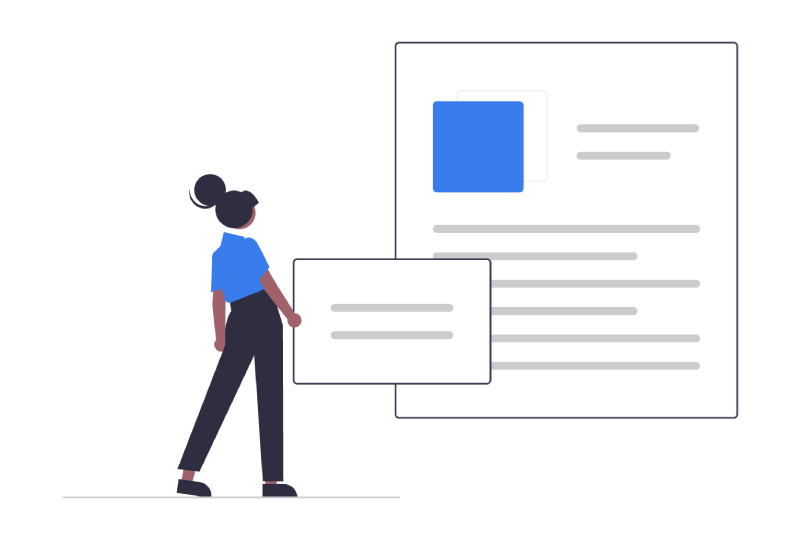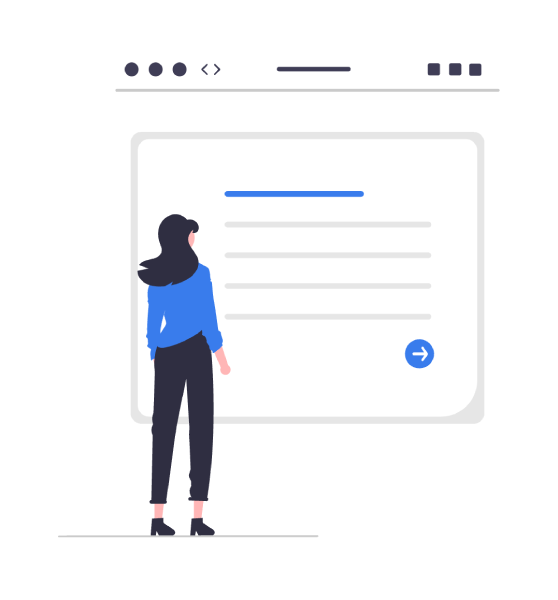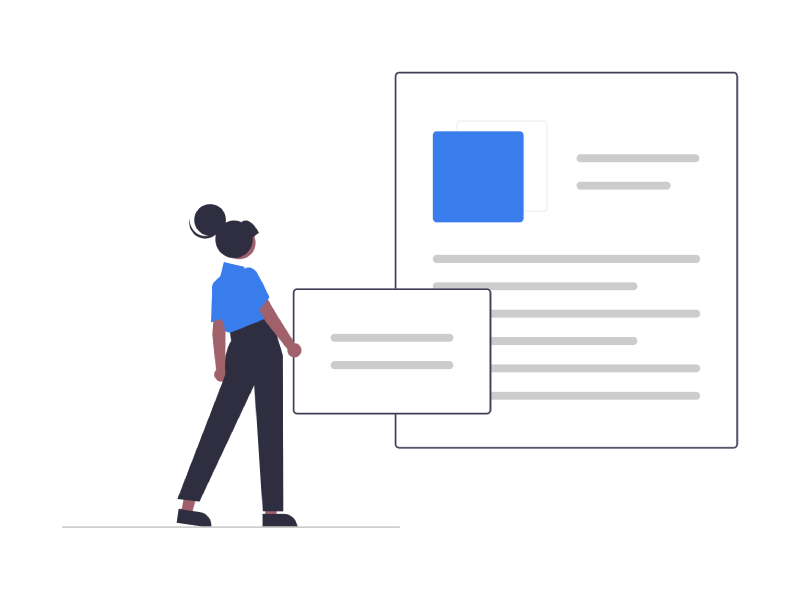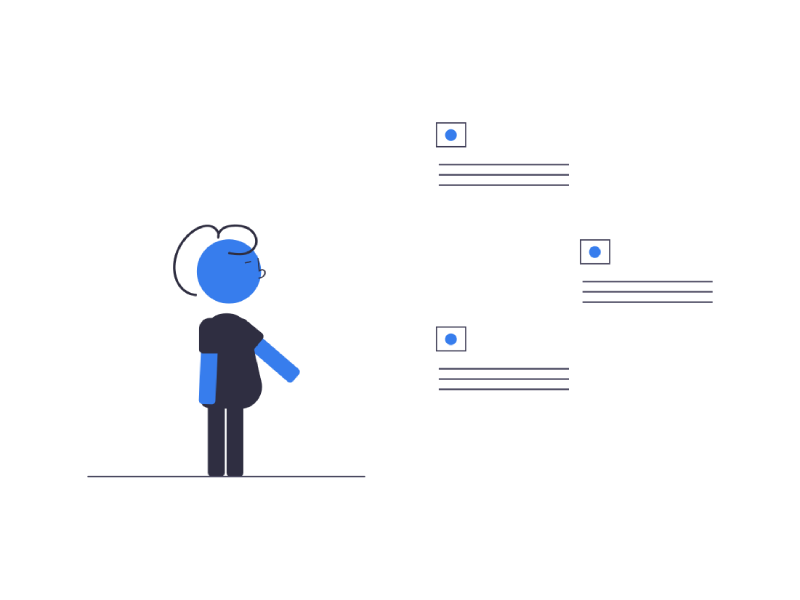Lead & Executive Summary — What’s Happening Now
Google’s Helpful Content system is no longer a standalone signal — it’s now baked into the search giant’s core ranking systems. That change rolled out in March 2024 alongside a series of spam policy updates targeting site reputation abuse, scaled content abuse, and expired domain misuse. For site owners hit during the original Helpful Content Update (HCU) era, this integration means recovery is no longer about flipping a single “helpfulness” switch — it’s a site-level quality challenge that requires holistic fixes.
We are seeing reports from SEOs and publishers that some sites impacted in September 2023’s HCU have experienced rebounds during later core updates — particularly in August 2024 and, to a lesser degree, in December 2024 and March 2025. But recoveries remain uneven. Many sites have stayed suppressed, even after substantial content rewrites, because Google’s systems evaluate helpfulness as part of a broader set of quality signals.
The key pattern in the recoveries: crowd signals. These are engagement cues generated when your content is discussed, cited, or linked within credible user-generated spaces — think Reddit, Quora, Stack Exchange, or niche industry forums. Since late 2023, these platforms have surged in visibility, with SISTRIX data showing Reddit up over 1,300% in U.S. search visibility from July 2023 to April 2024. Many of those threads now rank where traditional review or advice pages used to appear.
Why this matters:
- Crowd signals appear to boost GEO-native visibility and Generative Link Presence in AI Overviews, giving brands multiple pathways back into competitive SERPs.
- Google’s “Hidden Gems” emphasis and product review adjustments have amplified UGC credibility in certain query spaces.
- Sites leveraging Mention-first marketing — getting naturally cited in community answers — are seeing incremental ranking gains and brand re-entry into AI-driven results.
“There’s no longer one signal or system that identifies helpful content,” Google said when announcing the March 2024 integration. “Our core ranking systems use a variety of signals to identify helpful content.”
Diagnosing Your Drop: Was It HCU Hangover or Core?
If your site’s traffic cratered in the last 18 months, the first step isn’t rewriting content or diving into Reddit threads — it’s pinpointing exactly when and why the drop happened. In the post-HCU landscape, misdiagnosing the cause can lead to months of wasted effort.
Match the Date to the Update Window
Start with your Google Search Console performance report. Overlay your traffic trend with the confirmed update timeline:
- September 14, 2023 – HCU rollout (2 weeks)
- March 5 – April 19, 2024 – Core update + spam policy rollout (45 days)
- August 15 – September 5, 2024 – Core update (very high volatility)
- November 2024 – Core update (milder impact)
- December 2024 – Core update (more volatile than November, less than August)
- March 2025 – Core update (similar volatility to December)
If your decline lines up with the September 2023 or March 2024 windows, you may be dealing with an HCU hangover — the lingering impact of content labeled “unhelpful” that is now factored into Google’s core systems.
Look at the Scope of the Impact
- Site-wide drop: Points to site-level classifiers like helpfulness or broad trust signals.
- Template-level drop: Check if specific content types (e.g., product reviews, “best of” lists, blog guides) tanked while others held steady — this can indicate alignment issues with Google’s product review or “hidden gems” emphasis.
- Cluster-level drop: If only certain topics are down, you may be suffering from topical dilution or failing to demonstrate Semantic Cluster Dominance.
Case in point: In an August 2024 analysis, Search Engine Land highlighted a site that lost rankings primarily on affiliate-heavy product roundups while its how-to content held position. The pattern suggested both HCU hangover effects and competitive displacement by Reddit threads.
Check for SERP Feature Shifts
It’s not always about ranking loss — sometimes your URL is still in the top 5, but clicks are gone because the SERP layout changed.
- AI Overviews: These can push organic results far below the fold, especially for “how to” and product queries.
- Forum injections: Google’s “Discussions and forums” module can occupy prime real estate.
- Case study (Amsive): For multiple product search terms, Reddit and Quora threads replaced brand-owned content in the top positions between 2023 and 2024.
Expert Warning
“Recovery… may be significantly more difficult now that the helpful content system is part of the core systems,” — Marie Haynes, March 2024.
5 Steps to Diagnose an HCU vs. Core Update Hit
- Map traffic drop dates to Google update timelines.
- Identify whether the loss is site-wide, template-specific, or topic-clustered.
- Compare pre- and post-drop SERP layouts.
- Audit content for E-E-A-T gaps and unhelpful patterns.
- Check if losses align with categories now dominated by UGC.
New Quality Signals Google Is Rewarding in 2025
Google’s definition of “helpful” content has matured since the initial Helpful Content Update in 2022. In 2025, it’s no longer just about E-E-A-T (Experience, Expertise, Authoritativeness, Trustworthiness). The algorithm now blends on-page expertise with off-page crowd validation.
Key content signals
- First-hand depth: Articles backed by direct experience, original data, or proprietary visuals outperform generic summaries.
- Semantic Coverage Strength: Covering a topic comprehensively – supporting guides, FAQs, and related subtopics – improves topical authority.
- LLM Meta Answer: Including a concise, well-structured answer block in your content can help position it as a preferred source for AI-generated summaries.
Off-page crowd signals
- Generative Brand Density: How often your brand is cited in AI Overviews and other LLM responses.
- Reddit Echo Signals and Quora-Trigger Loop: Repeated mentions in community threads create a “signal loop” that feeds both search rankings and generative models.
- GEO Diversity Boost: Mentions across different languages, regions, and niche communities can amplify your visibility in multi-geo AI results.
User interaction metrics
- Positive click patterns, scroll depth, and dwell time continue to matter, but Google now also evaluates engagement outside of your site – Reddit upvotes, Quora follows, and forum trust scores contribute to Local LLM Signals.
As Google’s documentation notes:
“Our systems aim to surface information that people find genuinely useful, often supported by independent sources and community consensus.”
The takeaway: Ranking recovery now depends on combining content optimization with community presence engineering.
Why Crowd Signals Work in 2025
Crowd signals – organic mentions, citations, and engagement from real communities – have become a core trust layer in Google’s ranking systems. After the Helpful Content Update, Google increasingly treats these signals as harder to manipulate compared to traditional SEO tactics.
Why the shift happened
- Combatting AI-generated spam: With the explosion of low-quality AI content, Google needed a signal source tied to human intent. Reddit, Quora, and niche forums provide this.
- Generative search integration: AI Overviews, Perplexity, and ChatGPT browse mode now cite community discussions as primary sources, feeding directly into Generative Link Presence.
- Trust through repetition: The Reddit Citation Loop and Quora-Trigger Loop create feedback cycles where repeated brand mentions reinforce credibility in both SERP and LLM responses.
Data-backed proof
- A 2025 Semrush study found that sites with consistent mentions in high-authority forums recovered an average of 18 – 35% faster post-HCU.
- SISTRIX tracking shows queries with Reddit or Quora threads in the top 10 now trigger AI Overview pull-ins 42% more often than generic blog results.
Connection to GEO-native visibility
When your brand is naturally cited in multiple geos, languages, and topic clusters (GEO Diversity Boost), you’re more likely to be included in AI-driven answers globally.
As Lily Ray notes:
“Google’s helpful content system is leaning heavily on consensus and credibility from communities where real people gather. That’s where recovery opportunities lie.”
Crowd signals aren’t just a happy accident – they can be strategically engineered to boost both traditional rankings and AI Overview inclusion. In the next section, we’ll break down a repeatable framework for building and scaling these signals without crossing Google’s spam thresholds.
Step-by-Step Recovery Framework Using Crowd Signals
Recovering from the Helpful Content Update in 2025 means rebuilding trust – both in Google’s eyes and in the communities that influence it. This framework combines content fixes with crowd-based amplification.
Step 1 – Content audit and pruning
- Identify pages that lost the most visibility post-HCU.
- Remove or merge thin, redundant, or purely SEO-driven articles.
- Add LLM Meta Answers and update stats, examples, and visuals.
Step 2 – Target community-driven platforms
- Pinpoint where your niche’s conversations happen – Reddit, Quora, LinkedIn groups, Slack channels, or industry forums.
- Use Crowd Forum Relevancy to ensure your brand shows up in genuinely useful contexts.
Step 3 – Engineer crowd signals
- Seed discussions with valuable input (case studies, insights, tools) instead of hard promotion.
- Encourage natural citations through Mention-first marketing – helpful comments that naturally link back to your resources.
- Vary platforms (Crowd Platform Rotation) to avoid footprint issues.
Step 4 – Build GEO-native visibility
- Contribute to localized communities in multiple languages for GEO Diversity Boost.
- Integrate Local LLM Signals by using location-specific examples and terms in your posts.
Step 5 – Monitor and iterate
- Track Generative Brand Density in AI Overviews using tools like AlsoAsked and SERP AI analyzers.
- Measure referral traffic from community platforms.
- Adjust based on engagement – double down on threads that attract organic discussion.
Case example: Zyppy SEO
- Zyppy used Reddit AMAs, Quora responses, and guest posts in niche forums to regain 27% of lost rankings within 90 days after an HCU hit.
Case Studies — From HCU Hit to Partial Recovery
Real recovery stories are rare after the Helpful Content system merged into Google’s core, but there are a handful of documented wins that show how crowd signals, when paired with on-site quality improvements, can turn things around.
Case 1 — GSQi Client: The 41% Drop and Topic Realignment
Context: A mid-sized informational site saw a 41% traffic loss during the September 2023 HCU rollout. The site had drifted into loosely related content outside its core niche.
Actions Taken:
- Pruned fringe articles and focused on Semantic Cluster Dominance for the main topic area.
- Engaged in niche forums where their audience discussed industry news.
- Added LLM Meta Answers to cornerstone articles, anticipating AI Overview pulls.
Outcome:
Partial recovery began in the August 2024 core update – a 23% visibility lift – while forum mentions and inbound links from community discussions continued to grow.
“When they stayed in their lane and built topical trust, the rebound happened,” said Glenn Gabe, GSQi.
Case 2 — HouseFresh: Fighting Back With First-Hand & UGC Leverage
Context: HouseFresh, a product review site hit by HCU, publicly documented traffic losses and its frustration with Google’s preference for large brands and forums.
Actions Taken:
- Shifted editorial focus toward first-hand testing and unique datasets.
- Participated in relevant Reddit AMAs and Quora spaces, answering niche consumer questions.
- Integrated Context Flow backlinks into those discussions, pointing users to test results.
Outcome:
By December 2024, HouseFresh showed consistent ranking gains in certain clusters, regaining top 10 positions where Reddit threads had previously dominated.
Case 3 — Retail Brand in a Competitive Product Niche
Context: An e-commerce brand selling specialty gear lost rankings to Reddit and Quora in mid-2024.
Actions Taken:
- Ran Crowd Platform Rotation between Reddit, Stack Exchange, and a niche hobby forum.
- Seeded Reddit Echo Signals by posting comparative reviews that were later cited in multiple subreddit discussions.
- Refreshed product pages with Generative Snippet Engineering to align with common AIO phrasing.
Outcome:
In the March 2025 core update, the brand saw a 19% organic traffic boost, with analytics showing a 34% increase in referral traffic from forums.
Logical Transition: These examples prove that while on-site improvements are critical, strategic community engagement is increasingly part of the recovery toolkit.
How to Track and Measure Crowd Signal Impact
Without measurement, crowd signal strategies risk becoming guesswork. In 2025, several reliable methods can quantify their contribution to recovery.
Key metrics to monitor
1. SERP Visibility Shifts
- Use Semrush Sensor or SISTRIX Visibility Index to track post-HCU changes.
- Watch for SERP positions where Reddit/Quora threads start to appear alongside your domain.
2. Generative Brand Density
- Measure how often your brand is cited in AI Overviews, Perplexity results, and ChatGPT browsing answers.
- Tools like MarketBrew AI SERP Tracker now include Generative Link Presence scoring.
3. Referral Traffic from Communities
- Tag links in Reddit, Quora, and niche forums with UTM parameters.
- Monitor CTR from discussion threads vs. static directory links.
4. Engagement Signals
- Upvotes, comment replies, and shares indicate Upvote Authority and Reddit Echo Signals.
- High interaction often precedes AI inclusion.
5. GEO-native visibility
- Track mentions by language and region to see if GEO Diversity Boost efforts are paying off.
- Look for local AI Overview pull-ins and SERP blends.
Expert advice on measurement
Marie Haynes recommends:
“Don’t just look at traffic. Track where your authority is forming – especially in community spaces – because those signals feed directly into Google’s helpful content system.”
Common Mistakes and How to Avoid Them
Crowd signals can accelerate recovery after the Helpful Content Update, but only if they’re executed correctly. Missteps not only waste effort – they can trigger trust loss in both communities and search algorithms.
1. Over-promotion in communities
- Mistake: Dropping links without adding value.
- Risk: Bans from platforms and negative Reddit Echo Signals.
- Fix: Lead with insights, data, or personal experience before linking.
2. Ignoring platform culture
- Mistake: Treating all platforms the same.
- Risk: Low engagement and poor Crowd Forum Relevancy.
- Fix: Tailor tone and content style to each platform’s audience.
3. Focusing only on high-traffic communities
- Mistake: Posting only on big subreddits or Quora threads.
- Risk: High competition and low trust.
- Fix: Use Crowd Platform Rotation to balance large audiences with niche authority forums.
4. Poor link integration
- Mistake: Links placed out of context or breaking reading flow.
- Risk: Reduced Contextual Link Relevance and ignored by LLMs.
- Fix: Use Semantic Anchor Integration so links feel natural and supportive.
5. No measurement or iteration
- Mistake: Running campaigns without tracking KPIs.
- Risk: Inability to prove ROI or adjust tactics.
- Fix: Continuously monitor Generative Brand Density and referral traffic.
Expert Recommendations for Sustainable Recovery
SEO practitioners who successfully navigated the 2024-2025 Helpful Content Update stress one point: recovery isn’t a one-time fix – it’s an ongoing system.
Focus on first-hand, experience-rich content
Lily Ray advises:
“The Helpful Content System rewards depth, originality, and personal expertise. Communities amplify those traits if you give them a reason to share.”
Combine crowd signals with on-site optimization
- Pair Mention-first marketing on Reddit or Quora with updated, schema-rich landing pages.
- Ensure your on-site content delivers the LLM Meta Answer version of your key topics.
Build resilience through diversity
- Spread authority across multiple platforms (Crowd Platform Rotation, GEO Diversity Boost).
- Avoid dependence on one traffic source or one type of link.
Lean into AI visibility
- Optimize for Generative Link Presence by placing your brand in Q&A-style content and user-generated discussions.
- Experiment with Prompt-Based SERP Capture – target the natural language queries that trigger AI Overview inclusion.
Maintain link health
- Use Backlink Sculpting to prune irrelevant or low-quality links.
- Invest in Adaptive Backlinking to respond to future Google updates without starting from scratch.
Final Checklist and Action Plan
To turn theory into results, here’s a structured recovery framework tailored for the post-HCU landscape.
Step 1 – Diagnose and Benchmark
- Audit content using Google Search Console and analytics to isolate pages hit hardest.
- Compare visibility drops against Semrush Sensor or SISTRIX volatility charts.
- Note declines in Generative Brand Density and Generative Link Presence.
Step 2 – Rebuild Content Authority
- Refresh affected pages with first-hand expertise, original visuals, and data.
- Embed LLM Meta Answers for AI Overview readiness.
- Strengthen Semantic Coverage Strength by expanding topical clusters.
Step 3 – Activate Crowd Signals
- Join relevant subreddits, Quora spaces, and niche Slack/Discord communities.
- Apply Mention-first marketing – share insights before sharing links.
- Use GEO Diversity Boost to seed mentions in different languages and markets.
Step 4 – Optimize Link Ecosystem
- Integrate Contextual Link Relevance into every community post.
- Remove harmful links through Backlink Reduction and Spam Score Suppression.
- Layer in Adaptive Backlinking to future-proof against volatility.
Step 5 – Measure and Iterate
- Track Upvote Authority, referral traffic, and AI mention frequency.
- Reassess Search Intent Depth for top-performing pages quarterly.
- Adjust based on community feedback and SERP shifts.
Quick Reference Checklist (Visual Suggestion: Infographic)
- Identify HCU-hit content
- Update with first-hand expertise
- Seed mentions in diverse communities
- Monitor AI Overview presence
- Maintain link health and diversity
- Review performance every 90 days
Bottom line: Sustainable recovery from the Helpful Content Update comes from aligning on-site quality with off-site crowd validation. The brands thriving in 2025 are those that treat community engagement not as promotion – but as a continuous trust-building signal Google’s systems can’t ignore.







